Inside: The 12 best unschooling books according to a homeschool mom who has read a majority of the unschooling books available today. Get descriptions of each book and how to know which unschooling book is the best one for you.
Before I launch into these books, you should know that I don’t consider myself an unschooler, although my unschooling friends may disagree.
Our homeschool probably looks very “unschooly” from the outside looking in. But I do still have overarching educational goals for my kids, things I ask them to do currently and will eventually require them to do.
Basically, our homeschool is not entirely child-led or child-centric.
I consider myself a relaxed homeschooler who is heavily influenced by, and loves to read about all things unschooling.
Related: Unschooling v. Relaxed Homeschooling – What’s the Difference?
Why Read Unschooling Books? (If You Don’t Want to Unschool)
(Update: I have now officially transitioned to unschooling. Shocker, I know. Unschooling books helped convince me, but unschooling podcasts finally helped me take the leap!)
Now that I got that out of the way, I still absolutely adore reading unschooling books of all kinds.
I consider them an essential part of my own education as a homeschool mom, and I strongly recommend that every homeschool mom read at least one unschooling book.
Why? Because unschooling books challenge your assumptions about education.
They show us what the opposite extreme of traditional education looks like and pull you closer to a healthy balance.
Reading these books will challenge your beliefs about what you actually need to learn as a child in order to be a successful adult.
They question the merits of curriculums that are jam-packed with what a group of people somewhere at one time or another decided is “essential knowledge”.
Why is that knowledge essential? And why should we learn it in the first place if we will forget 80% of it and will never ever need that knowledge again (other than for the test, of course)?
These books will help you to declutter your homeschool. They will help you cut away the excess and establish what is truly essential for your unique family, your unique child(ren) and your unique homeschool.
Unschooling books also remind me again and again that I’m not (entirely) crazy. Walking away from traditional education and keeping our homeschool super simple and relaxed isn’t a mistake.
Because you can feel crazy, especially if you are a former rule-follower, conformer, go with the crowd type. Sometimes the conventional tugs at you simply because it’s easier to do what everyone else is doing, to raise your kids the way everyone else is.
Choosing the path less traveled isn’t easy.
Knowing that there are other people who have chosen an even less traveled path than I have, and for excellent reasons, brings me comfort. It reminds me that a different path can be a really good thing for certain families.
And if you are genuinely interested in pursuing unschooling as your primary homeschool style, these unschooling books are definitely required reading.
Related: Minimalist Homeschooling for the Overwhelmed Homeschool Mom
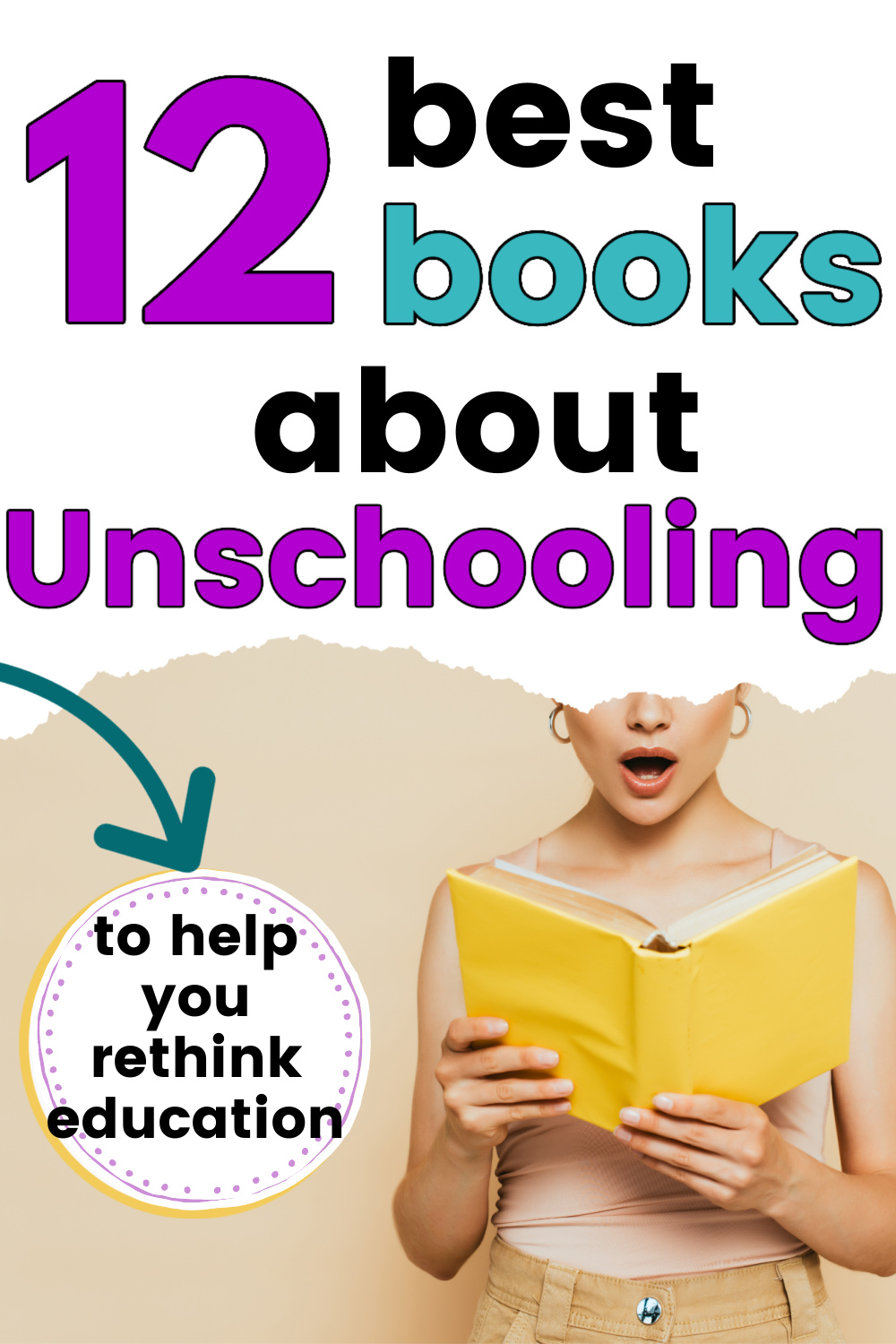
12 Best Unschooling Books
These are not the only unschooling books out there, but they are the ones I have read personally and would recommend to any homeschool parent.
The book are listed from highest priority to lowest priority. So if you only have time to read a few unschooling books, start with the first book on the list and work your way down.
Related: Unschooling vs. Homeschooling – The Major Differences
Changing Our Minds by Dr. Naomi Fisher, released in 2021, is now one of my favorite unschooling books. She communicates everything that unschooling is about, with research and counseling experience to back it up. It’s a must-read if you are interested in unschooling!
(Many of these books are also available on Kindle Unlimited. Try Kindle Unlimited for FREE for 30 Days HERE.)
1. Free to Learn

Boston College psychology professor Peter Gray is one of my favorite people.
His simple, research-based claim that children are naturally born with a drive to learn if we only create the proper environment for them to do so is what gave me the confidence to leave behind “school at home” homeschooling years ago.
In Free to Learn, Gray offers insight into how children learned before modern times, and how they still do learn in tribal cultures today. He argues that what looks like “just” pretend play to adults is actually the best kind of learning for children.
He also shares several insights and stories about children who attend(ed) the Sudbury school in Massachusetts, an “unschooling school” where children are free to study whatever they like with the support of school employees.
His descriptions of what children spent their time doing at this unique school, and what they eventually went on to do for work as adults, was the most helpful and encouraging part of the book for me personally.
Unschooling really can lead children to find their passion, and eventually, work to match that passion.
If you are looking for an educated exploration into the “why” behind unschooling, especially play-based learning during the elementary years, this is the book for you.
You Might Also Like: Unschooling Science – 8 Easy Ways to Nurture Your Child’s Natural Curiosity
2. Why Are You Still Sending Your Kids to School?

The subtitle of this book is compelling: the case for helping them leave, chart their own paths, and prepare for adulthood at their own pace.
Why Are You Still Sending Your Kids to School is number two on the list because Boles specifically addresses high schoolers, and what becomes of children who pursue unconventional forms of education.
Can they still go to college? If so, how do they get there without school?
These are the questions parents are asking from kindergarten on. It is the main argument against unschooling, and it is rare to hear these arguments addressed head on.
To hear those concerns addressed so bluntly and so effectively is reassuring for homeschoolers and unschoolers everywhere.
He also addresses privilege in educational choice, where he says that families who home/unschool are largely white and middle class, often with two college-graduated parents. Many families don’t have this safety net.
This acknowledgment is very important to me, and if it is to you, too, you will probably appreciate this unschooling book.
3. An Unschooling Manifesto

In an unschooling manifesto, Marla Taviano writes in a candid and often hilarious way about her families journey into unschooling.
A former teacher, she talks honestly about the failings of the current educational system and all the reasons unschooling makes sense to her now.
If you want a lot of honest processing and to see exactly how (and why) one family went from public school to homeschooling to unschooling, and what unschooling looks like day to day, this is your book.
This one is my sentimental favorite and the first unschooling book I ever read. I used to read it over and over again my first few years as a homeschooler, and I believe you’ll love it.
Note: Despite the title, Taviano’s follow-up book reads more like a personal memoir about her family’s experiences after deciding to move overseas to Cambodia. While I appreciated the book for personal reasons, I do not recommend it for learning more about unschooling.
Related: 17 Life-Changing Non-Fiction Books (Is This List Subjective? Absolutely)
4. Unschooling Rules

This book is one of my favorites. It’s so short, so sweet, and it was one of the first books I read when I started exploring unschooling.
Each chapter is a “rule” of unschooling, and some of them are super short (Chapter 2 is just 23 words long).
The title of Chapter 3 is pure bliss: “Learn something because you need it or because you love it.” YES!
And I love the matter-of-fact-ness of Chapter 8: “What a person learns in a classroom is how to be a person in a classroom.” And Chapter 20: “Read what normal people read.” (EXACTLY.)
The Kindle version of this book is the cost of a cup of coffee, and I seriously cannot recommend it highly enough.
5. Sage Homeschooling: Wild and Free
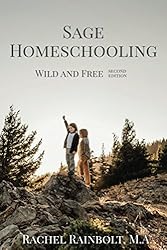
In Sage Homeschooling, Rachel Rainbolt breaks everything unschooling down very simply, and probably because I am a blogger, I love her conversational style of writing.
Sage Homeschooling reads much like several blog posts put together (and it very well may be), and sometimes like a podcast (she has one).
If you are looking for an extremely formal book that has been edited dozens of times by professional editors, this is not your book.
She addresses many common concerns that come up around about unschooling, including educational gaps, how much screentime, what is enough, and more.
The chapters are simply:
- Deschooling
- Connection
- Trust
- Freedom
- Collaboration
- Environment
- Experience, and
- Success
If you need someone to calm you with her gentle, straightforward approach, this book is just what you need.
P.S. Her podcast is also amazing! You can find it HERE.
6. The Brave Learner
Note: This book isn’t officially an unschooling book BUT several prominent unschoolers are currently reading it, applying it, and referencing it. I have a hunch that if unschooling wasn’t such a polarizing label in the homeschool community, Julie Bogart would call herself an unschooler.

Reading Julie Bogart’s calm and soothing words in The Brave Learner is like being wrapped in a big, soft hug. Her podcast and other books are much the same.
Let’s face the daunting task of educating your children in the glow of soft light and warmth. I invite you to join me on a scavenger hunt for the ordinary magic already at work in your family. In this book, I offer you a kind, gentle approach to parenting and homeschooling your young charges—a plan that facilitates your dreams.
Julie Bogart, The Brave Learner
Don’t you feel better already?
She uses words like enchantment and ease, delight and curiosity, contentment and whimsy. She tells us that we don’t have to strive or stress, nag or live exhausted in our homeschool lifestyle.
She offers several practical ways to enchant you child’s education.
A mix of relaxed homeschooling and unschooly ideas, this is your cup of tea if you want a gentler, less rigid introduction to unschooling.
Related: Unschooling Language Arts – A Guide for the Elementary Years
7. How Children Learn

If you haven’t read this unschooling classic, you’ve got to.
John Holt was born almost a hundred years ago (sadly, he died in 1985 at age 62) and is widely known as the pioneer of homeschooling/unschooling.
The most recent edition of this book was published in 2017 on its 50th anniversary. It has sold over 1 million copies and withstood the test of time.
John began his career in public schooling (me, too), grew disillusioned with it (me, too), started advocating for homeschooling, then unschooling (me, too) and went on to write 11 books (me too—mine have just sold about 992,000 less copies than his).
I think what stands out most to me about this book is his genuine heart for kids. You can’t help but get the sense that he really truly cares about them and dedicated his entire life to serving their needs, a major one being more autonomy in their own lives and educations.
In one of the later editions of the book, he writes what might be my favorite parenting/education quote:
All I am saying in this book can be summed up in two words—Trust Children. Nothing could be more simple, or more difficult. Difficult because to trust children we must first learn to trust ourselves, and most of us were taught as children that we could not be trusted.
John Holt, How Children Learn
8. Unschooled: Raising Curious, Well-Educated Kids

Kerry McDonald is flat-out brilliant. With a master’s degree in education from Harvard, she is an education policy writer who has published articles in several respected newspapers, magazines, and journals.
And her four kids have never spent a day in school.
Don’t let this intimidate you, because in spite of all those mind-boggling credentials, she’s managed to write this very down-to-earth, informative, encouraging, and inspiring book about unschooling.
If you’re wondering why parents choose unschooling or what it looks like in their everyday lives from someone who is “schooled” (that Harvard degree), this is the book for you.
She hooked me with the part about schools preparing children for the Industrial Age but unschooling preparing them for the Imagination Age.
Forced schooling is a cultural relic, reminiscent of a bygone age. Stuck preparing young people to do the jobs now done by robots, mass schooling ignores the cultural and economic realities of a new human era. Instead of robots, we need inventive thinkers, curious seekers, and passionate doers.
Kerry McDonald
That’s exactly what I want my kids (and myself) to grow up to be.
9. The Unschooling Journey: A Field Guide

Pam Laricchia is an unschooling pioneer in her own right. Her kids left school in 2002 to start their unschooling journey, and they’re all adults now.
She’s written five books about unschooling, and this one doubles as a journal for you to record your thoughts and feelings as you and your family embark on your own unschooling journey.
The book is mapped out along the three main stages of Joseph’s Campbell’s “Hero’s Journey”: departure, initiation, and return.
What does unschooling have to do with something we usually associate with Greek mythology and the like? She explains it this way:
The monomyth of a hero describes an individual who somehow stumbles upon clues to a truth that lies outside of conventional belief, and begins a quest—physical, spiritual, or both—to understand and eventually embody that truth as their new way of life.
Pam Laricchia
If you’re willing to believe in the power of unschooling, as unconventional as it is, and begin a quest to pursue this different way of life, this book will help you on that journey.
Especially as you encounter opposition from family, friends, and everyone else still pursuing a conventional education and life for their kids, you will need the encouragement and unique perspective that Laricchia offers.
Just so you’re prepared, her style is a little philosophical and admittedly not as down to earth as the previous books on this look.
10. Curious Unschoolers

Sue Elvis is an Australian unschooling blogger, YouTuber, podcaster, and mum to eight kids. Her husband happens to be a public school teacher and is completely on board with their unschooling lifestyle.
Curious Unschoolers is a collection of stories (some of which were probably blog posts), each containing “a piece of unschooling that illustrates a principle, thought, or idea.”
Probably due to the fact that the author is a long-time blogger, the book reads like a conversation between two friends. The author lets you into her personal musings about unschooling, her worries and fears, their family rhythms, as well as personal, positive conclusions about unschooling.
An unschooling book by an unschooling parent who has actually graduated unschooler children who are pursuing their own versions of success – from college to technical school – offers the much needed reassurance that we aren’t screwing up our kids by choosing a non-traditional educational path.
For Sue and her family, unschooling isn’t just another “method of homeschooling.” It’s bigger than that.
Unschooling is about fulfilling our missions in life. We’re all born with talents. Everyone has passions and interests. They are part of who we are. Unschooling is about having the freedom to develop those talents and follow our interests so that we can contribute to the world.
Sue Elvis, Curious Unschoolers
11. The Unschooling Handbook

This one is an oldy (1998) but a goody, and I was surprised to look through it recently and see how much of it is still relevant and applicable.
Author Mary Griffith talks about how unschooling often sounds too simple and too good to be true (yes) and how skeptics insist that it has to be more complicated than we say it is (yes, they do).
This has been my experience for sure.
She shares sample days and weeks of unschooling to give the reader one idea of what it could look like but reminds us that there’s no formula or one right way to do it. That’s kind of the whole point.
She addresses burning questions like: How can it possibly work? What if my kids never learn how to do things they don’t want to do? What about math? What about college? Will my kids turn out differently than other kids?
These are questions I’m sure all of us have had at one time or another.
This is the book for you if you are seriously pursuing unschooling as a lifestyle and want “how-to’s” for every subject and practical advice from unschooling parents and their children.
12. Homegrown

I hesitated to include this book because it was not at all what I expected when I read it, and if there is one you could skip, it would be this one.
However, it does come up on Amazon in pretty much any search on unschooling (after seeing it enough times, I caved and bought it), so I leave my thoughts here.
This book is not a manual about unschooling, or even a picture of what modern unschooling could look like.
If you thought unschooling was off the beaten path, then this family’s lifestyle is even more so.
The Hewitts are homesteaders living off the land in more ways than one. When the two boys aren’t doing basic lessons or helping around the family farm, they spend a lot of their time in the woods, learning to track and hunt animals.
Hewitt admits that he and his wife don’t know exactly what unschooling should look like and are learning it alongside their kids.
On his reasons for unschooling, he states,
Like most children of our generation—indeed, like most children of our sons’ generation—we did not grow up free to determine our place in the world. Like most children, we were told our place… we were unquestioningly expected to do as the majority of our childhood peers did, with little consideration given as to what was truly being asked of us and what the cost might be.
Ben Hewitt, Homegrown
Essentially, if you want an inspiring story of a family who builds their own solar-powered house and operates a livestock, vegetable, and berry farm on 40 sprawling acres of field and forest in Northern Vermont, then this is your book.
Finally, Honorable Mentions!
A not quite an unschooling book is The 5-Hour School Week. This book plays off the four-hour work week concept (Tim Ferriss) and reminds me of Minimalist Homeschooling. The Amuchastegui’s explore what it looks like to condense formal schooling into one hour a day, five days a week, leaving an abundance of time for travel and child-led learning.
And another new unschooling memoir by former teacher Marta Obiols Llistar is 18: An Unschooling Experience – also a great read! It’s definitely memoir, but if you’re curious what individual unschooling families can look like, you’ll want to grab this quick read.
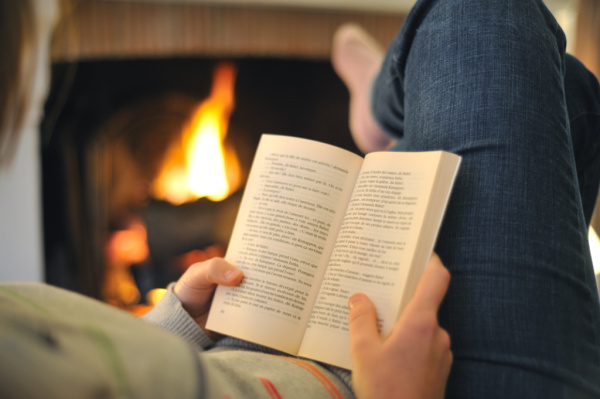
Need Unschooling Confidence? Read a Book
I know this: unschooling requires confidence to keep going for the long haul, confidence that this is the best educational choice for your family.
If you come from a traditional education background, that confidence may seem elusive.
Some things only time and experience can give you.
No one can hand you experience…but I can hand you a book.
Reading these unschooling books is one of the easiest ways to give yourself a shot of confidence on a regular basis.
Knowing that other people believe unschooling is a viable educational option – among them former teachers and professors with master’s degrees – is so very reassuring.
If you want to pursue unschooling or anything close, like relaxed homeschooling, you need at least a few of these books in your life.
Start with Free to Learn, work your way down. Trust me.
What are your favorite unschooling books? Share in the comments!
Read Next: Why A Former Teacher Chose to Unschool Her Own Children
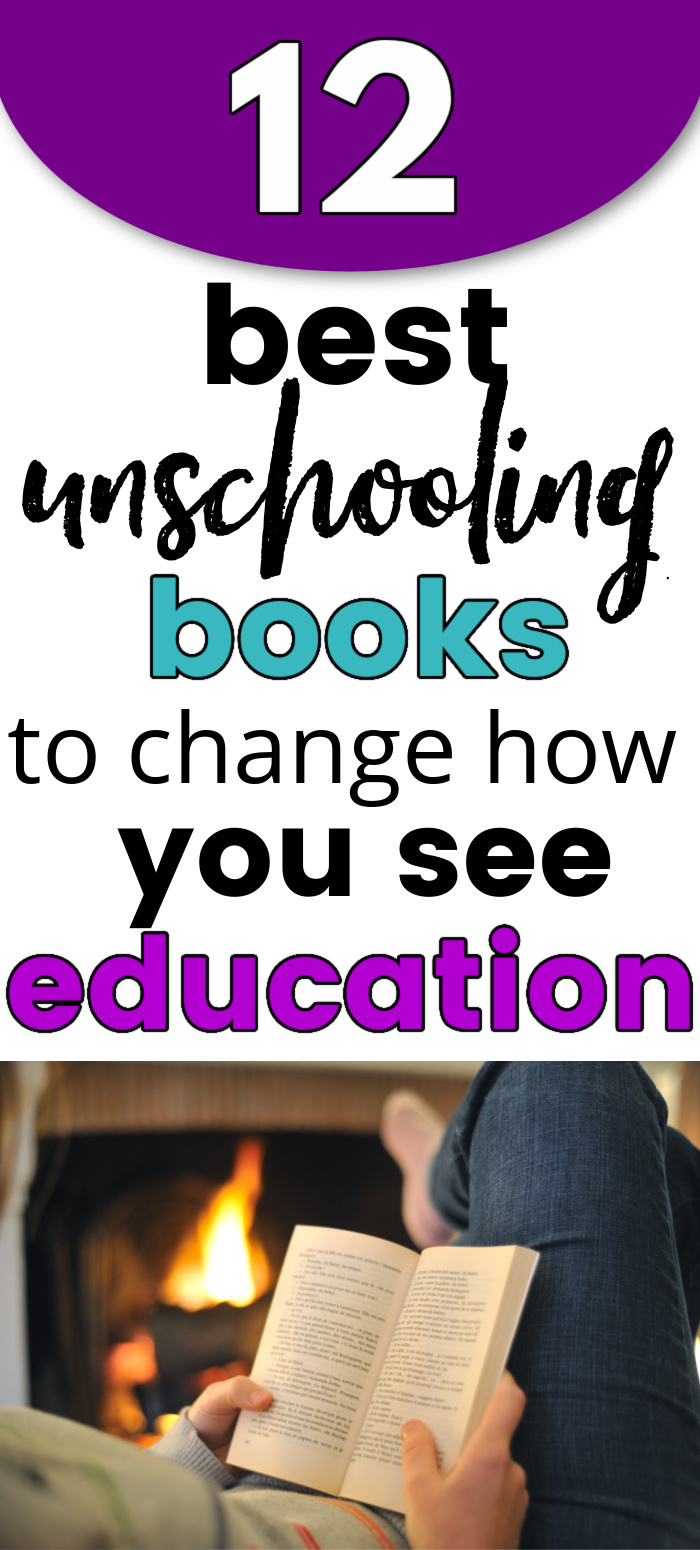

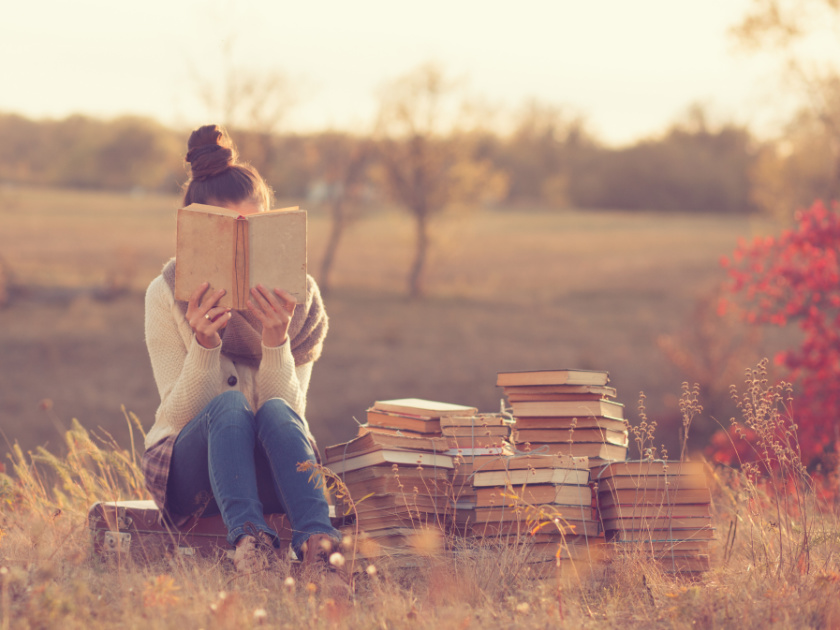
Also classic unschooling books by John Holt are invaluable as he was the first pioneer to study,observe&write about unschooling. I also recommend folks read John Taylor Gatto. He was New York teacher of the year who exposed the dumbing down of the American public school system.
Absolutely! I have one John Holt book on the list, but the rest of great, too. And Dumbing Us Down is a classic for sure. Thanks for sharing Jennifer!
Thanks for a great list. I have read 5 of them and have 2 I haven’t read yet. Another book I REALLY loved and read recently is: Changing Our Minds by Naomi Fisher. It’s a newer book, was published in 2021. Mentioning this book incase you are not aware it.
Thanks for an inspiring blog and also emails.
Great List! I would have also put Boles at the top! I recommend Fare of the Free Child by Akilah S. Richards (almost a step-by-step guide on deschooling ourselves) and although I haven’t read it yet, I’m excited to jump into Untigering by Iris Chen. I’ve see her talk and she has a great story.
Hi June,
Thank you so much for including my book in your list! I smiled when I saw your post. I shared your link in our unschooling community and it generated a discussion about books!
You are so welcome Sue! I truly love your book and can’t wait to read your parenting one as well.
Thanks for the list…so glad to have you in my corner..
You’re welcome Lisa!